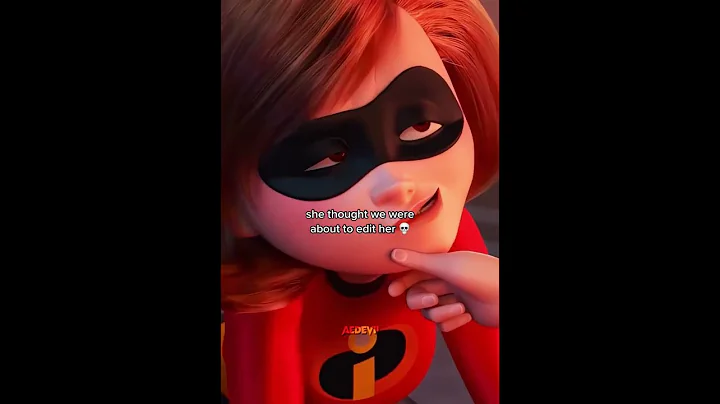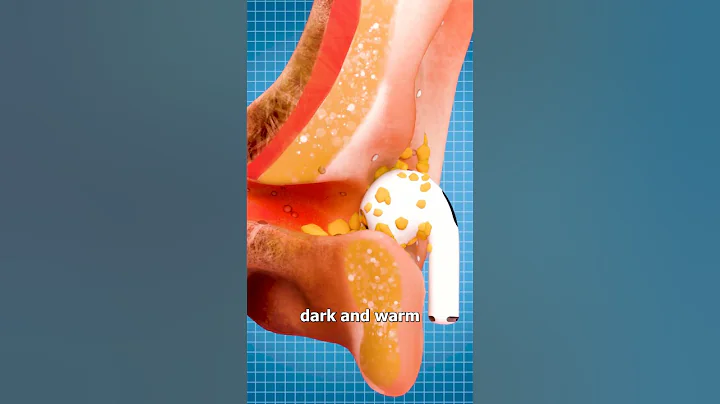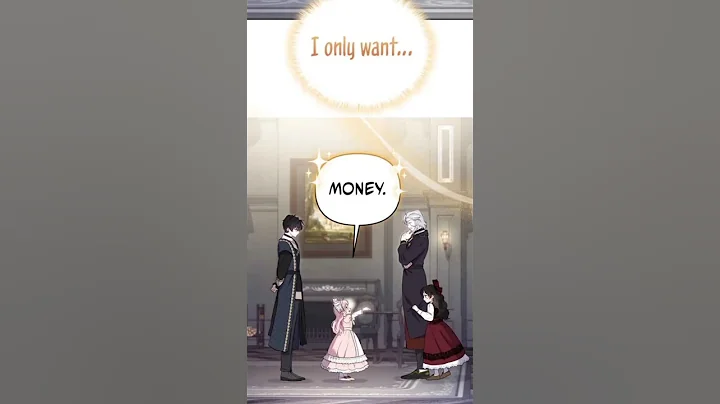
defeated the opponent twice. The first time was in my own heart.
To do anything well, the hardest part often comes not from the outside, but from our hearts.
When we take an exam, there may always be a voice in our hearts saying, "What if we fail?" "There are so many competitors, can I pass them?";
When we are preparing to meet a customer, we think The voice may be saying, "What if the customer refuses?" "If I can't sign this business, my salary will definitely be reduced."
has formulated a weight loss plan, and the thought may pop up in his mind, "I Can I really lose weight successfully? "Can I stick to this plan?";
These inner voices are like "little monsters" that disturb our minds and hinder the way forward. So, how many obstacles are there in our hearts? How are they formed? How to overcome it?
We can divide all kinds of "little demons" into four major categories to form four "little demon families", which will help us see their characteristics more clearly and make them easier to identify.
Little monsters are actually a deep-seated fear in our hearts, an inner dialogue between the conscious and subconscious minds, which invisibly operate our habits, feelings and behaviors. When we are able to see the workings of goblins and bring them from the unconscious level into the conscious level, their power over us is weakened.
Through coaching techniques or transformational dialogue in career counseling, we can effectively promote awareness and begin to question the "little monsters" that operate our lives. Once their legitimacy is questioned, we transcend obstacles and gain the strength to move forward.
Below, let’s take a look at these four categories of “little demons” respectively.
1. Fear of dreams
Can you clearly state your dreams? Maybe you can. However, for some people, they are afraid to have their own dreams.
When you ask them "What is your dream?", the answers they often get are "I don't know", "I have never thought about it", "It's useless to think about it"...;
When you ask When they ask "What are your wealth goals?", the answers they get are probably the same "I don't know" and "I've never thought about it"... Why does this happen with
? Usually this has to do with past experiences. The past failure experience makes them dare not imagine the future. They equate the future with the past, fearing that life will disappoint them again. They feel more comfortable staying confused about their dreams than facing their inner truth.
For such people, coaches usually try to touch this area gently and slowly, using miracle questions and other "what if frame" questions to knock on the door of their hearts.
For example, we can ask this question: "Suppose you are 80 years old today, sitting on a deck chair in the yard, leisurely enjoying the coolness of autumn, looking at the golden leaves on the trees, and you begin to recall the life you have lived. , feel that this life is very valuable, and you have no regrets. Do you think it is because of what you have accomplished? "
Only by having dreams and being able to clearly see the exciting vision of the future can change happen. May happen with .

2. Fear of failure (pointing to self)
When we are inspired, have a dream, and start to implement it, we will encounter the second little demon - the fear of failure. It is said that it is the fear of failure, but in fact, this little demon is more directed at self-evaluation.
People are often very harsh on themselves, unforgivable, and unable to reconcile with their current selves. Such self-blame, complaints, dissatisfaction and judgment will become huge obstacles for us to move forward.
Let’s imagine that you are participating in a 100-meter race. When you are struggling to run forward, someone behind you is holding one of your legs tightly. Do you think you can win the race easily? Obviously not. And this self-judgmental little demon is the one holding you.
Check, have you ever had the following thoughts:
Can a person like me accomplish such a thing?
I don't deserve to have so much wealth;
I'm too ugly;
I'm too lazy and can't do anything;
I can never have the achievements of others;
I'm too stupid and don't have any skills. ;
.........
These negative thoughts are like iron fences, imprisoning themselves in them and losing their original creativity. Why are there such self-imposed limitations and negative evaluations? This is also related to our past living environment.
Growing up, we have been accustomed to criticism from people around us, always magnifying our shortcomings and deficiencies, and always ignoring the things we have done well. We value modesty and prudence and humility, and do not be arrogant or arrogant. We believe that praising others will make them feel great and lose their true understanding of themselves.
As a result, a small and inconspicuous thing will be magnified infinitely to trigger awakening and avoid complacency. Over time, the seeds of self-blame are sown in our hearts. We no longer believe that we are the best, and often think that we are very poor.
Praising a person has more positive effects than belittling a person. The positive effect is a hundred times stronger.
Faced with this little monster, what should we do?
First, change the focus to . Create the desired positive intentions in your mind by exploring your inner values and abilities. Focus our attention on what we want to be, not on what we need to overcome. Focusing on difficulties will reduce your energy; focusing on what you want will increase your energy.
Second, imagine the steps to implement . Coaches usually help clients visualize, design and complete each step of the plan, and see the results of step-by-step detailed actions.
Third, re-evaluate the authenticity of the idea. We can put these limiting beliefs on the table and take a fresh look. Are they real? Am I really not good at this? Who told me it couldn't work? Did I come to the conclusion after verification, or did I just take it for granted? When we begin to learn to question these thoughts head-on, their power disappears.
3. Fear of external systems (pointing to the outside)
Fear of external systems includes two aspects:
One is the fear that what you do will not be recognized by the people around you . For example, I like to draw, but my family around me think that drawing can’t support me, so I might as well learn engineering well and become an engineer in the future. There is a conflict between one's own ideals and the values of those around them. Some people choose to stick to their true intentions, while others may compromise. In life, there are many examples of this. When we do things, we always have to take into account other people's ideas and conform to other people's standards. Sometimes this is necessary, and sometimes it becomes an obstacle for us.
The second is always looking for excuses from the outside for . For example, I can't do this well because: my family has no money; my father is not an official; I don't have enough time and have too many work tasks; the leader does not support me; the weather is too bad, which affects my performance; People around us are always talking, which is so annoying...
Excuses and reasons are the enemies of us getting things done. When we blame external factors for our failures, we feel safe and liberated. In fact, it is a solution to the problem without any benefit. How does
crack the fear of external systems?
The best way is to find and focus on things that we can control. In the process of promoting the implementation of goals, what can we control? What is beyond our control? How can you maximize what you can control?
The change of focus will give us a greater sense of control over things and stimulate a sense of self-responsibility. We will no longer complain or make excuses, but practice it with real actions.
4. Fear of conflict
The fear of conflict can also be understood from two aspects:
① The conflict of wanting to complete multiple tasks within a period of time. For example, I not only want to spend more time with my family, but also want to work overtime to do my job well. At the same time, I also want to have my own time to study, recharge, or have leisure and entertainment. I want everything and want to be satisfied with everything, but my time, energy and money are limited and I cannot be satisfied at the same time. When
encounters such a situation, the coach will usually help the client manage time tasks, distinguish various matters according to the two dimensions of important and urgent, and make reasonable arrangements.
②Perfectionism, always wanting to do perfect things. When writing an article, I always don’t want to take action before the deadline; when doing something, I am always in preparation and refuse to take action. Behind perfectionism is actually the fear of being rejected. As long as I don't take action and don't show my own works, no one will accuse me. This kind of mentality makes us habitually procrastinate and make us weak in action.
The best way to get rid of perfectionism is to cultivate iterative thinking. Don't always think about "holding back your big move", and don't expect to "fly into the sky", "become a blockbuster" or "become famous". What you do must be high-quality. Masters all started out as primary school children.
We can make a 1.0 work first. No matter how unsightly it is, at least we have something, which is a hundred times better than staying at the level of thinking without taking action. With the works of 1.0, it is constantly iterated and upgraded, becoming 2.0, then 3.0, 4.0...
is not absolutely perfect, and relative perfection is also formed through iterations.
The four little demons are the "inner demons" on our way forward. We must cultivate our own "fiery eyes" to identify these little demons. Only by defeating demons along the way can we release the power to move forward and reach the distance in our hearts.





















